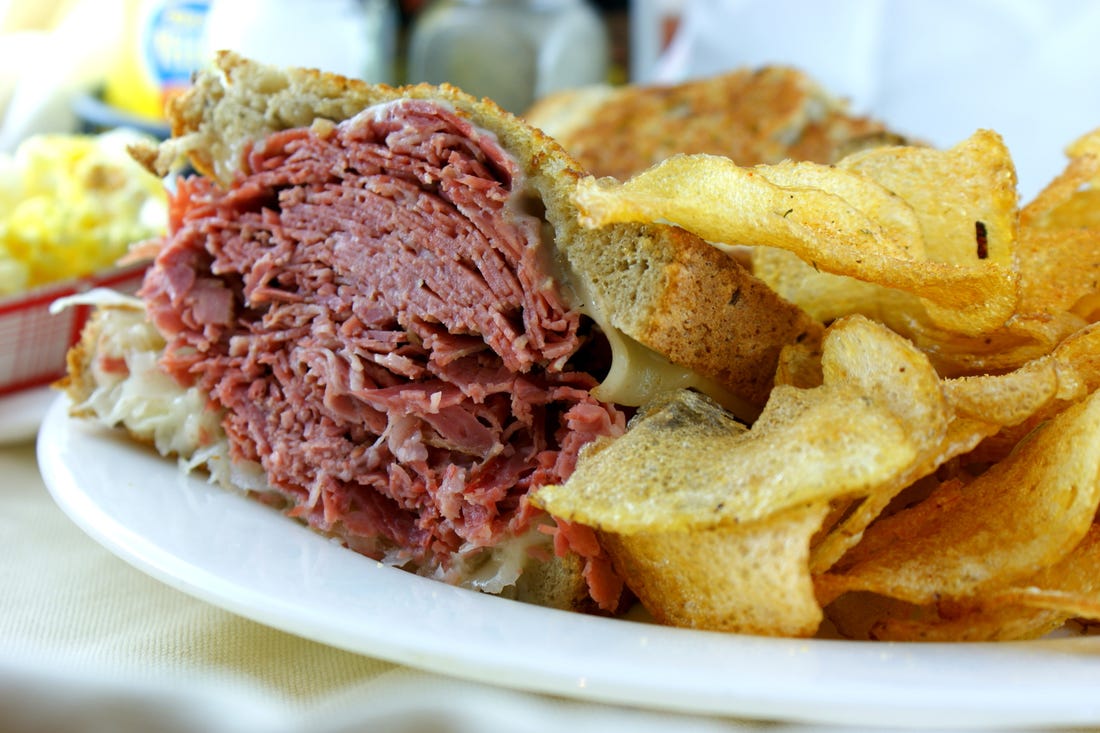We’ve all made that silent promise to ourselves: “Today, I’ll eat clean.” And yet, somehow, that promise unravels by late afternoon with a pastry in one hand and a cappuccino in the other. Whether it’s the pressure of a hard day, the emotional pull of nostalgia, or simply the aroma of a warm chocolate chip cookie wafting by, our willpower tends to crumble in unexpected ways.
To better understand this cycle, we turned to some of the top experts in nutrition, psychology, and behavioral science. Their insights shed light on why so many of us consistently eat more than our bodies actually require—and more importantly, how we can gently take back control.
1. Sleep Deprivation and Hormonal Chaos
Lack of sleep doesn’t just leave you cranky—it deeply affects your biology. According to Dr. Kristen L. Knutson, a sleep and health specialist from the University of Chicago, sleep loss can disrupt the delicate balance of two key hormones: leptin and ghrelin. Leptin signals fullness to the brain, while ghrelin screams hunger. When you're sleep-deprived, leptin levels plummet while ghrelin soars—creating the perfect storm for overeating.
A landmark study in the Annals of Internal Medicine found that people who only got four hours of sleep over two nights experienced an 18% drop in leptin and a 28% rise in ghrelin. Unsurprisingly, these participants reported a 24% increase in appetite. Over time, sleep debt doesn't just influence hunger—it can also impair glucose metabolism and contribute to insulin resistance, paving the way toward type 2 diabetes.
How to regain control:
Sleepy brains crave quick fixes. That’s why you're likely to reach for sugary or carb-loaded snacks when tired. Instead, refuel smartly. Try pairing complex carbohydrates like whole grains with protein. For example, go for whole-wheat toast with scrambled egg whites, or a bowl of high-fiber cereal topped with fruit and low-fat yogurt.
A brisk 10-minute walk can also give you a mental jolt, without any caloric consequences. And remember—prioritize sleep. Aim for 7 to 9 hours each night in a sleep-optimized environment: cool, quiet, and dark, used solely for sleep and intimacy.
If you struggle with insomnia or constant fatigue, don’t ignore it. Seek a professional evaluation from a sleep specialist.
2. The Pressure Cooker of Modern Stress
Stress is the silent saboteur behind many of our unhealthy eating patterns. Chronic stress floods your body with hormones like cortisol, which increase appetite and enhance cravings—especially for high-fat, high-sugar comfort foods. Elissa Epel, PhD, a renowned UCSF psychiatrist and expert on stress and obesity, points out that stress not only increases your desire to eat but also makes it harder to resist those cravings.
Even worse, cortisol encourages the buildup of visceral fat—dangerous fat around your organs—which increases your risk of cardiovascular diseases. If you’re already overweight, you’re more vulnerable: fat cells themselves produce cortisol, amplifying its effects.
In a study published in the American Journal of Epidemiology, women dealing with financial problems, job-related stress, or strained relationships were more likely to gain weight over time.
How to regain control:
The first step is to make stress reduction a daily habit, not an afterthought. Mindfulness practices like deep breathing, progressive muscle relaxation, and even yoga have been shown to lower cortisol levels and reduce emotional eating. According to a study in the International Journal of Obesity, just 20 minutes of progressive muscle relaxation can noticeably reduce stress and appetite.
Also, turn physical activity into an emotional outlet. Dance, jog, stretch, or take a fast-paced walk—whatever works best for your body and mood. If stress feels overwhelming or persistent, don’t hesitate to talk to a professional counselor.
3. Your Brain Is Hooked on Fatty Foods
Believe it or not, our cravings for indulgent food have deep evolutionary roots. As Dr. David Kessler, former FDA commissioner and author of The End of Overeating, explains, our ancestors relied on calorie-dense foods for survival. In their world, fatty and sugary foods equaled energy and survival. Fast-forward to today’s environment—where food is everywhere—and this once-useful instinct is sabotaging our health.
In fact, every time you consume something rich in fat or sugar, your brain creates a lasting memory of that pleasurable moment. According to research in the Proceedings of the National Academy of Sciences, this imprint encourages repeat behavior. Add in the smells, sights, or even the time of day, and suddenly you’re walking down a street thinking about cookies just because you've eaten them there before.
How to regain control:
Start by disrupting your food-associated rituals. If you always crave chips at a certain time of day or in a specific place, consciously change your routine. Don’t walk past your favorite bakery. Don’t sit on the same couch with the same snack.
Also, pay attention to your mental chatter. Instead of arguing with yourself about eating the dessert, shift focus. Think about something more valuable to you—like feeling energized, reducing bloating, or being a healthy role model for someone you love.
And when all else fails, compromise with a healthier version: frozen yogurt topped with berries instead of a full sundae, or a cold glass of nonfat chocolate milk when you want that chocolate fix.
4. When You’ve Already Overeaten—What Now?
It happens. One meal turns into a binge, and guilt follows like a shadow. But slipping up isn’t the end of your progress—it’s part of the journey.
Reclaim your balance with these tips:
-
Forgive yourself. Beating yourself up for overindulging only makes things worse. As Elisa Zied, RD, points out, “Self-criticism often leads to more indulgence, not less.”
-
Course correct. Don’t wait till tomorrow. Start your next meal with clean, nutrient-rich options: lean protein, vegetables, whole grains, and water.
-
Review the trigger. Think about what pushed you to overeat—was it emotional, environmental, or hunger-related? Journaling can help connect the dots.
-
Get moving. Add 10–15 extra minutes to your next workout, or take a long walk. But don’t treat exercise as punishment. Instead, frame it as a way to reconnect with your body and your goals.
5. The Danger of Mindless Eating
We've all done it—munching through a whole bowl of popcorn during a movie or devouring lunch while typing at our desks. When we're not fully present while eating, it becomes dangerously easy to overconsume without even realizing it. Researchers have consistently found that multitasking during meals dulls our internal cues of fullness, making us more likely to eat more than we need.
This kind of distracted eating—whether in front of a screen or behind the wheel—turns nourishment into background noise. Instead of savoring flavors or recognizing when we're satisfied, we shovel in more, simply because our mind is elsewhere.
How to regain control:
Create intentional meal moments. Sit at a table, put your phone away, turn off the TV, and eat slowly. Pay attention to texture, temperature, aroma, and taste. These small habits reconnect you with your body's natural ability to detect fullness. Eating becomes more satisfying—and ironically, you'll need less to feel content.
6. Eating Too Fast
Speed-eating is one of the easiest traps to fall into, especially when time is short. But gulping down meals in a rush short-circuits the brain's communication with your stomach. It takes approximately 20 minutes for your body to signal that it's had enough food. If you've already polished off your plate in 10 minutes, you're likely to go for seconds before your brain has a chance to catch up.
This delayed reaction is a major cause of accidental overeating.
How to regain control:
Try this: after each bite, set your fork down. Take a breath. Chew slowly. These little pauses help slow your pace naturally. Drinking water between bites can also slow you down and aid digestion. Before you consider getting more food, pause and assess—are you still hungry or just continuing out of habit?
7. The All-Or-Nothing Diet Trap
Diets that forbid entire food groups or your favorite treats may seem like a shortcut to success—but they often backfire. Completely depriving yourself of something you enjoy can create a psychological backlash. The result? A binge the moment that food becomes available.
Keri Gans, RD, emphasizes that creating rigid food rules makes slip-ups feel like personal failures, which often triggers even more extreme eating in response.
How to regain control:
Instead of forbidding foods, create limits that are flexible and sustainable. Love chocolate? Rather than cutting it out entirely, set a rule that you’ll only eat high-quality dark chocolate once or twice a week. Craving chips? Try buying single-serve bags instead of family-sized ones. This way, you're not fighting your desires—you’re learning to manage them.
8. Emotional Eating and Food as a Coping Tool
Food has become a stand-in for emotional regulation for many people. When we're sad, bored, angry, anxious—or even happy—we often turn to snacks, sweets, or hearty meals to enhance or soothe those feelings. But while food can provide a temporary high, it doesn't actually address the root emotion.
Over time, this habit creates a pattern of dependency. The more often you eat to change your feelings, the less confident you feel in your ability to handle emotions without food.
How to regain control:
Start by distinguishing between emotional and physical hunger. Are you actually hungry, or just tired, stressed, or lonely? Instead of reaching for a snack when you're down, try calling a friend, journaling your thoughts, or even stepping outside for fresh air.
For celebratory moments, reward yourself with experiences—like a day off, a walk in nature, or a relaxing bath—instead of always turning to food. This helps reinforce that joy and comfort don’t always have to come with calories.
9. The Stress-Cortisol-Craving Cycle
This point deserves its own reminder. Chronic stress isn't just exhausting—it chemically rewires your appetite. When cortisol is running high, it ramps up your desire for calorie-dense foods, especially those with fat and sugar. It’s your body’s ancient way of prepping for survival—except that modern stress rarely involves life-or-death danger.
But the fallout is very real. Persistently high cortisol is linked not only to overeating but also to poor sleep, reduced immunity, and an increased risk of chronic diseases like heart disease and diabetes.
How to regain control:
Mastering stress management is a long game, but daily practices make a big difference. Meditation apps, breathing exercises, creative hobbies, physical activity, and strong social connections can act as shields against overwhelming stress. Even five minutes a day of guided breathing or journaling can help re-center your mind and keep your cravings in check.
10. Oversized Portions Are Now the Norm
From restaurant meals to packaged snacks, portion sizes have ballooned dramatically over the past few decades. A muffin that once weighed 3 ounces now often weighs over 6. Salads come drenched in dressing, smoothies are super-sized, and dinner plates have nearly doubled in diameter.
In this oversized world, it's easy to lose perspective on what a reasonable portion looks like. We’re often served two or three times what we need—and many of us feel compelled to “clean the plate.”
How to regain control:
Relearn portion cues by starting with less on your plate. Use smaller dishes. At restaurants, ask for a to-go container at the start of your meal and pack half away before you begin eating. You’ll be surprised how satisfying a normal portion can feel when you're not distracted or rushed.
11. Skipping Meals and the Blood Sugar Crash
Skipping meals—especially breakfast—can be a recipe for overeating later. When blood sugar drops too low, your body enters crisis mode, and you’re more likely to reach for the nearest high-calorie fix. Hunger doesn’t just feel stronger; it becomes urgent, leading to impulsive eating and less-than-ideal choices.
How to regain control:
Aim to eat regularly throughout the day. For some, that means three main meals; for others, six small meals work better. The goal is consistency—keeping blood sugar stable prevents dramatic spikes and dips in hunger, reducing the urge to binge later.
12. The Clean Plate Mentality
Many of us grew up hearing “Don’t waste food” or “Finish everything on your plate.” These messages, often delivered with love, unintentionally taught us to ignore our internal fullness cues. Instead, we learned to measure a successful meal by whether the plate was empty—not by whether we were truly satisfied.
How to regain control:
Give yourself permission to leave food behind. Start with a smaller portion, and if you're still hungry, go back for more. Listen to your body, not your plate. With practice, you’ll become more attuned to when you’ve had just enough—not too little, not too much.
The Takeaway: Awareness Is Your Greatest Ally
Eating too much isn’t about weakness, greed, or a broken metabolism. It’s a multifaceted behavior influenced by biology, emotion, habit, and environment. When we understand the different triggers behind overeating—from hormone imbalances due to sleep loss to emotional hunger caused by stress or habit—we empower ourselves to take meaningful action.
The journey to more mindful eating doesn’t have to be perfect. There will still be days when you reach for that extra slice of pizza or finish the bag of chips without thinking. But by recognizing your patterns and gently shifting your behavior, one meal at a time, you begin to regain balance.
Instead of trying to force willpower in the heat of a craving, focus on building a lifestyle that doesn’t constantly test it. Get adequate rest. Manage your stress. Keep your environment supportive. Choose foods you love—but in ways that honor your health and goals.
Final Thoughts on Lasting Change
Small, consistent habits will always outperform extreme measures. Skipping meals, banning entire food groups, or labeling foods as strictly “bad” can backfire. On the other hand, creating a flexible, compassionate eating plan—one that respects your hunger, your preferences, and your emotional needs—sets the stage for long-term success.
Be curious about your behavior, not judgmental. Ask yourself: What led me to eat this way today? What was I feeling? What do I need more of—rest, connection, structure? The answers will guide you toward solutions that go far beyond the plate.
This isn’t about being perfect. It’s about being intentional.













